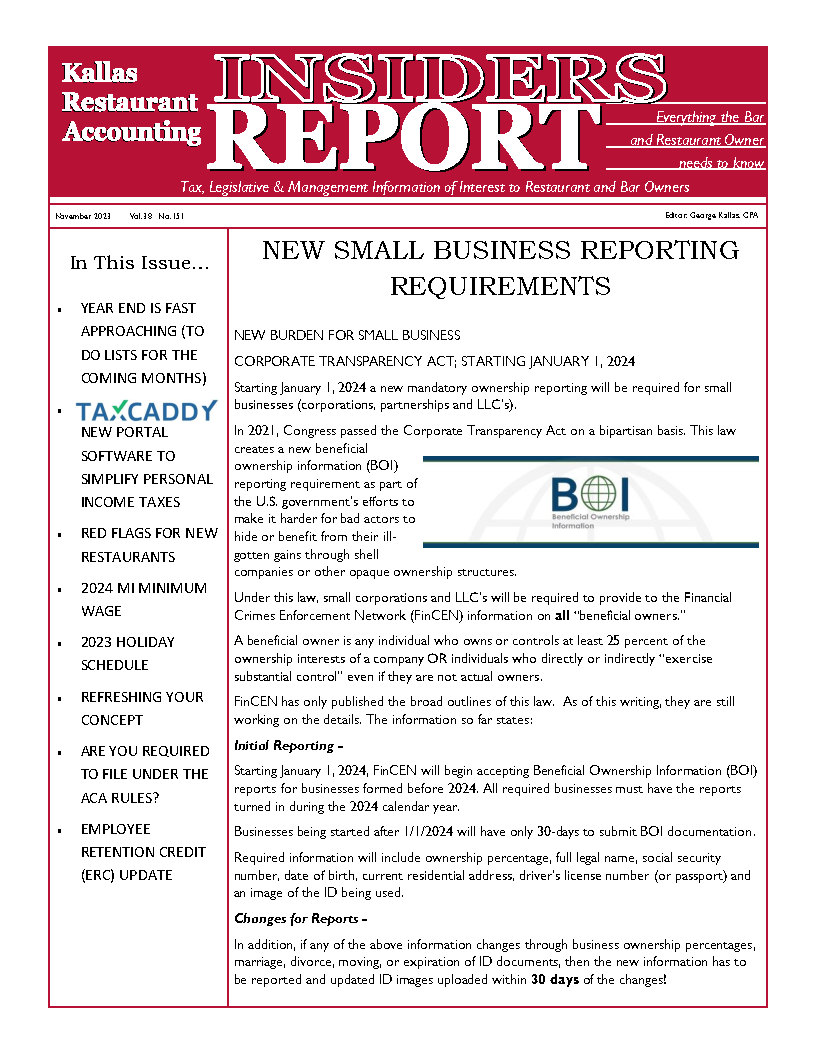
Owners, on occasion, ask me what retirement plan is best for restaurant owners.
Usually, I advise them that their hard-earned knowledge and experience in running a restaurant along with owning restaurant real estate is a pretty good retirement plan by itself. Return on investment for a successful restaurant can be a home run, and the tax benefits under current law definitely favor the small business owner.
You are your own boss and you control your destiny.
But if you want something to supplement your restaurant income or a hedge for your later years, especially if you can’t or do not want to work, then you should consider a tax-advantaged retirement program. Unfortunately, when it comes to what we think of as a traditional retirement plan like a 401K or an employer-sponsored profit-sharing plan where the money is invested at a tax-advantaged rate, there are not many great options for restaurant owners. Either the plans that are available are too limited in how much you can contribute or they are too complicated, costly and restrictive to be practical.
You are your own boss and you control your destiny.
What retirement plan is best for you?
Below, is a primer on retirement plans with my assessment as to the simplest to the most complicated for restaurant owners.
Traditional IRA. The most basic and easy retirement plan is to set up a Traditional IRA. It’s tax-deductible up to $5,500 per year for the husband and $5,500 for the wife. ($6,500 if over 50 years old). No income limits apply. Distributions are taxable and must start at age 70 ½. You may invest more than $5,500 per year but there is no deduction for additional contributions although the earnings are tax-free. Most restaurant owners use the Traditional IRA as their retirement savings plan. This is an individual plan and no employees need to be included.
Roth IRA. Uses most of the rules and contributions as a Traditional IRA but unlike the Traditional IRA, contributions are not tax-deductible. The benefit to the Roth is that when you retire, the distributions are not taxable. Also, contributions to a Roth may be limited if your income is too high. Fewer restaurant owners invest in a Roth IRA because of the income limitations and the non-deductibility. This plan is best suited for young people at lower tax brackets who do not need the current deduction.
Sep IRA for Self-employed. Deductible contributions may be much higher (up to $55,000 for 2018 or 25% of compensation, whichever is less). This is a powerful retirement vehicle if you are self-employed with no employees. If you have employees, however, they must be included in the plan under a certain age, earnings and years of service limitations. If you have a high turnover of young employees, this plan could work well for you because of the age and years of service limitation. You can also decide each year whether you want to contribute or not. The contributions come from you as the employer and are a deduction of the business. No IRS reporting requirements but employers must monitor eligibility and notify employees annually.
Simple IRA. Allowed for any business with less than 100 employees. Not well suited to restaurants due to the cost of the employer matching requirements and the paperwork associated with it.
Simple 401(k) plan. Although not requiring the extensive testing that a 401(k) plan requires, an employer still must fund the employee’s retirement benefits.
401(k) plans. Except in very unusual cases, a 401(k) plan for an independent restaurant operation requires expensive annual IRS reporting, testing, and other compliance duties and should be avoided.
The above guidelines are general in nature. You should consult with a retirement specialist to learn more of the details of each plan and which plan will accomplish your goals.


